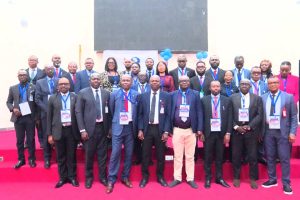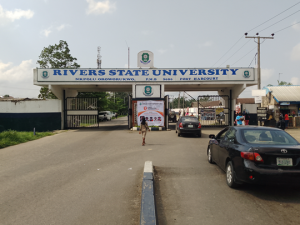
By Ola Kay
The Chairman of the Independent Corrupt Practices and Other Related Offences Commission, ICPC, Dr. Musa Adamu Aliyu, SAN, has emphasized the need for greater speed and consistency in the adjudication of corruption cases across Nigeria’s judicial system.
Dr. Aliyu made the call on Monday during the opening ceremony of a two-day workshop and capacity-building programme for judicial officers held at the National Judicial Institute (NJI), Abuja.
The ICPC Chairman, who highlighted the crucial role of the judiciary in ensuring that corruption does not pay and that those found guilty do not benefit from the proceeds of crime, noted that strengthening the capacity of judicial officers is essential to achieving the vision of a corruption-free Nigeria.
He said: “There is a clear connection between the objective of this capacity-building programme for judicial officers and the effective discharge of ICPC’s mandate in line with the Commission’s Strategic Action Plan (2024–2028). The effective administration of justice in corruption cases requires both vigorous law enforcement and scrupulous judicial oversight.”
Dr. Aliyu explained that recent developments in Nigeria’s anti-corruption landscape have made capacity building even more critical, as corruption cases are becoming increasingly complex due to rapid technological advancement and evolving societal challenges.
He linked this initiative to his CARE for Impact policy, which prioritizes corruption prevention while sustaining strong enforcement measures.
According to him, this approach has already yielded tangible results, including blocking over ₦20 billion from reaching ghost workers and recovering more than ₦2.5 billion from local government remittances across six states.
Delivering a lecture titled “Fair Trials: Balancing the Statutory Powers of Law Enforcement with Judicial Powers in Adjudicating Corruption Cases,” the ICPC Chairman stressed that the true measure of justice in corruption cases goes beyond securing convictions.
“Justice in corruption cases lies in upholding fairness, integrity, and strict adherence to the rule of law,” he asserted.
The ICPC boss emphasized that, while the ICPC and the judiciary perform distinct constitutional functions, both share a joint responsibility under Section 15(5) of the 1999 Constitution to abolish corrupt practices and abuse of power in Nigeria.
“The synergy between law enforcement and the courts remains the cornerstone of a justice system where no one is above the law, no one is beneath its protection, and where the fight against corruption is waged with both strength and fairness,” he concluded.
The workshop, organized in partnership with the National Judicial Institute, is part of ongoing efforts to enhance collaboration between the ICPC and the judiciary in promoting integrity, accountability, and efficiency in the justice system.
About The Author







